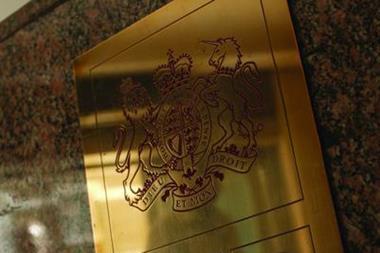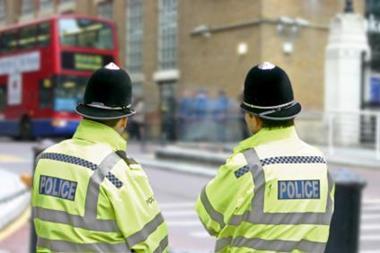Jonathan Pickworth and Lucinda Brett explore the ins and outs of the Conrad Black case and look at the implications for anyone who may be tempted to dabble in corrupt practices
His hunger for the lavish lifestyle of the rich and famous led him to ruin: Conrad Black's well publicised case has all the elements of a modern cautionary tale.
At the height of his career, after building the third largest newspaper empire in the world, Black was in charge of approximately 400 North American papers and a number of foreign titles, including The Daily Telegraph. However, in 2005, Black was indicted for fraud and in March of this year, he commenced a 14 week trial facing nine counts of mail and wire fraud, two counts of tax evasion and one count each of racketeering and obstruction of justice.
On 13 July 2007, after 12 days of deliberation, a jury found him guilty of three counts of criminal fraud and one charge of obstruction of justice. Black is due to be sentenced on 30 November 2007, although his lawyers have already asked a judge to throw out his conviction and he will be likely to exhaust all appeal routes.
The charge of obstruction was proved when Black was captured on CCTV moving 13 boxes of files out of his Toronto office into his car, just one day after his lawyers had received a fax warning them that the US stock market regulator would soon be requesting documents from him.
However, the crux of the case against Black focused on a large-scale sell-off of Hollinger International papers that were published across the US and Canada, which started in 1998. Companies that bought newspapers in seven such deals paid millions of dollars to Hollinger International, a publicly-traded US company of which Black was the CEO, in return for promises that rival publications would not be started up.
Some of the so-called 'non-compete payments' also went to a small Toronto corporation, Hollinger Inc, which was controlled by Black and which owned a controlling interest in Hollinger International. The tax-free payments to the executives and to the companies they controlled were said to be compensation for agreeing not to compete with the buyers of Hollinger International for periods up to five years. The sums of money produced by selling the businesses, coupled with the non-compete fees, helped support the jet-setting existence of Black and his wife.
The fraud allegations around the sale of these newspapers went to the heart of the prosecution's case. While non-compete fees are often a standard part of a corporate transaction, warning bells began to ring when the structure and destination of the non-compete fees were studied in more detail. The prosecution alleged that the non-compete deals in this case were frauds – cover stories invented to allow Black and his co-defendants to transfer tax-free money into their pockets.
Black, who remains at liberty following the payment of a $21m bond pending his sentencing in November, faces a potential maximum prison sentence of 35 years – five years on each fraud charge and an additional 20 years for obstructing justice. Efforts to seize his considerable assets are also under way.
Role of the jury
On both sides of the pond, commentators have criticised the use of juries in fraud prosecutions. This criticism, however, has been somewhat undermined following Black's conviction.
The charges brought against Black were high value and complex. The split verdict reached by the jury suggests that they carefully considered each of the 13 allegations and were prepared to distinguish between those in which the prosecution met its burden of proof and those in which it failed to do so. In securing a conviction in the Black case, the jury was aided by documentary evidence (video evidence of the removal of boxes of documents in relation to the obstruction charge) but, despite the complexity of the charges brought against Black, the jury clearly felt able to determine that Black was guilty of some but not others.
“Directors may face lengthy custodial sentences
The UK's approach
The Black case is one of a number of successful fraud prosecutions to have come out of the US (Enron and WorldCom are others). The UK, on the other hand, has been accused of having a patchy record when it comes to successfully prosecuting serious fraud. Does this mean that corporates in the UK, and their directors and senior managers, can feel free from the threats posed by today's aggressive regulatory environment?
It seems not. Tackling serious fraud and corruption have moved up the political agenda in recent years. Law enforcement authorities are now more proactive in their approach and regulatory requirements now come from a wider number of sources, which are discussed and explored below.
Most of the UK's regulators have criminal powers of enforcement (for example search, seizure, raids, arrests, interviews under caution) and sanctions. This creates a risky environment, but one which can be dealt with by managing risk across the entire regulatory cycle – from monitoring legislative developments to ascertaining how changes in the law will impact on business, to running risk reviews and implementing compliance programmes for employees, to keeping compliance and risk high on the boardroom agenda.
Corruption
Companies across the globe are facing mounting pressure to root out and prevent their employees, agents or consultants from engaging in bribery or other forms of corrupt business practices. There is a real focus on corrupt payments made by third party agents or consultants, as many companies operate under the misconception that the use of third parties provides a sufficient buffer against corrupt activity. US legislation has banned the overseas bribery of government officials since the 1977 passage of the Foreign Corrupt Practices Act (FCPA), but the US Department of Justice and the Securities and Exchange Commission have stepped up enforcement in recent years and there have been record fines and sentences imposed. Such enforcement action has spanned the globe, as US authorities are not shy about enforcing US law on an extra-territorial basis.
In Europe, regulators have also been cracking down as more countries take steps to execute the Organisation for Economic Co-operation and Development's (OECD) rules against overseas corruption, which are largely modelled on the FCPA. Moreover, the UK government has begun to take a proactive approach to such issues, particularly following various high profile corruption scandals which have been front page news over recent months and years.
Approach of the Serious Fraud Office (SFO)
The SFO's reputation has suffered in recent years as poor conviction rates were compounded by high-profile setbacks such as the Blue Arrow and Maxwell cases in the 1990s, and the more recent acquittals in cases such as Andrew Regan (on charges relating to a bribery at the Co-op) and the dropping of the Al-Yamamah probe. In reaction to this criticism, the SFO is now increasingly keen to probe further into company dealings and secure convictions. Indeed, it is believed that the SFO currently has a long list of cases under consideration for investigation, and funding has been announced for various investigations arising from alleged breaches of sanctions in respect of the UN oil-for-food programme.
In addition, a special task joint task force, comprising members of the SFO, the City of London and Metropolitan Police, was established in 2006 to investigate and prosecute corruption connected to the City of London.
Mutual assistance
“The crux of the case against Black focused on a large-scale sell-off
Regulators in the UK are provided with a wide palette of investigative powers. Each regulator has a selection of powers and expertise at its disposal which, in most cases, can be shared between them to create an elaborate and effective information gathering system.
There are also established mechanisms in place whereby foreign regulators can assist UK regulators (and vice-versa) in their administration or enforcement of business law and in the investigation and prosecution of offences. This type of mutual assistance is critical in tackling modern fraud in an age where fraud has no international boundaries.
Money laundering disclosures
New structures have recently been put in place to deal with organised crime, for example the Serious and Organised Crime Agency (SOCA). Money laundering legislation, which has been in force since 2003, has expanded, reformed and consolidated the UK's criminal money laundering offences, and the effect of the legislation has been to widen the circumstances in which a money laundering disclosure should be made to SOCA.
The Fraud Act 2006
Until the implementation of the Fraud Act 2006 on 15 January 2007, there had been no single, general fraud offence in English law. The Act, which was introduced to keep pace with modern fraud, sets out a general offence of fraud, with three broad ways of committing it: by false representation, by failing to disclose information and by abuse of position. Each of these fraud offences carries a maximum custodial sentence of up to 10 years.
This legislation is the latest drive by the Government to simplify and rationalise criminal offences relating to fraud. While its effect is yet to be felt, it is likely to increase the chance of successful prosecution of the dishonest.
Managing regulatory risk
The rules governing the ways in which companies do business are now more complex than ever, and the consequences of a breach can be devastating. Many of the sanctions for a breach are criminal or quasi-criminal, with company directors and officers facing personal liability, and successful prosecutions often resulting in imprisonment.
There are clearly several lessons for companies and their directors to bear in mind. In a worst case scenario, directors may face lengthy custodial sentences, such as Black will probably receive. However, even if convictions are avoided, regulatory investigations can subject individuals and companies to many years of stress, distraction and cost, so the risk needs to be managed at the outset, in order to minimise the exposure. There is a high value attached to corporate reputation, which can be easily damaged by regulatory intervention. It is, therefore, essential that issues that may lead to investigations and prosecutions are managed, from an early stage, by an experienced and specialist legal team..
Postscript
Jonathan Pickworth is partner and UK group head of regulatory and government affairs, and Lucinda Brett is a solicitor, DLA Piper, E-mail: jonathan.pickworth@dlapiper.com, Tel: 020 7796 6829, E-mail:lucinda.brett@dlapiper.com, Tel: 020 7153 7143



















No comments yet